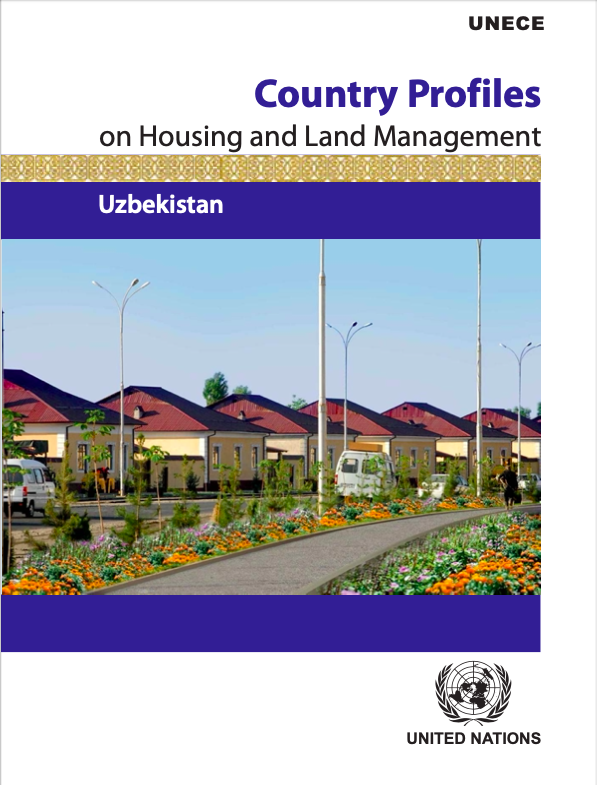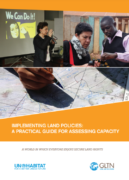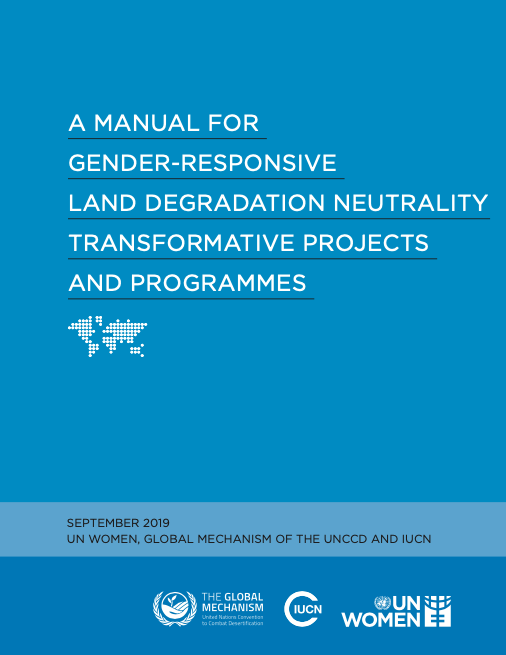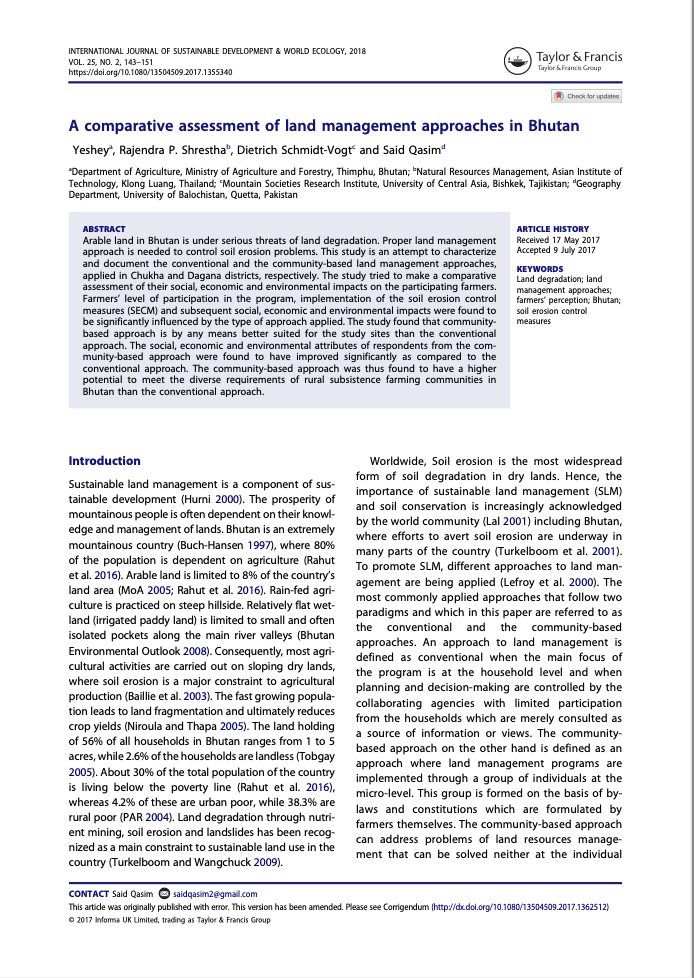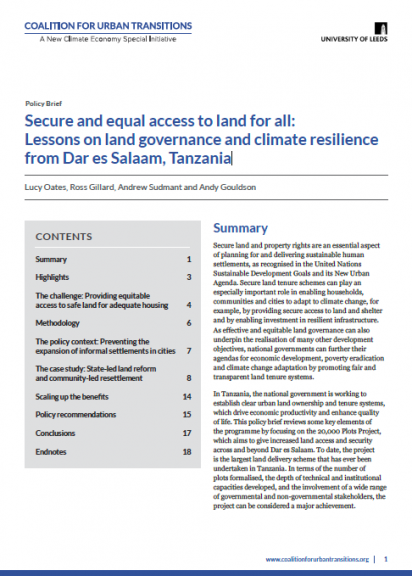Country Profiles on Housing and Land Management: Uzbekistan
This Country Profile on Uzbekistan is the eighteenth in the series. The country profile programme continues to focus on specific challenges or achievements in the housing and land management sectors that are particularly relevant to the country under review. In the case of Uzbekistan, these issues include housing policies and government support measures for the construction of housing in rural areas; the increased demand for housing of the fast-growing population; and the depleted urban infrastructure inherited from Soviet times.

